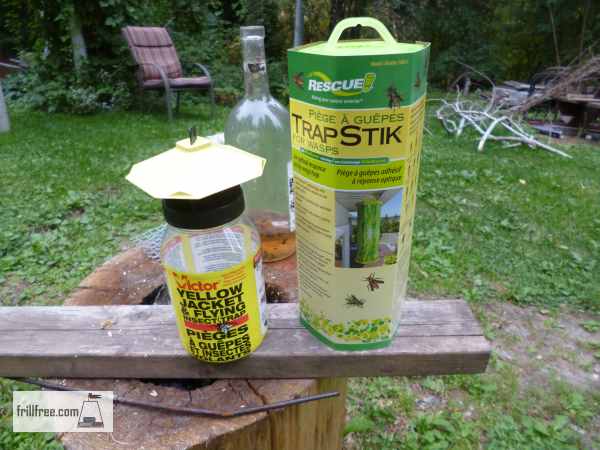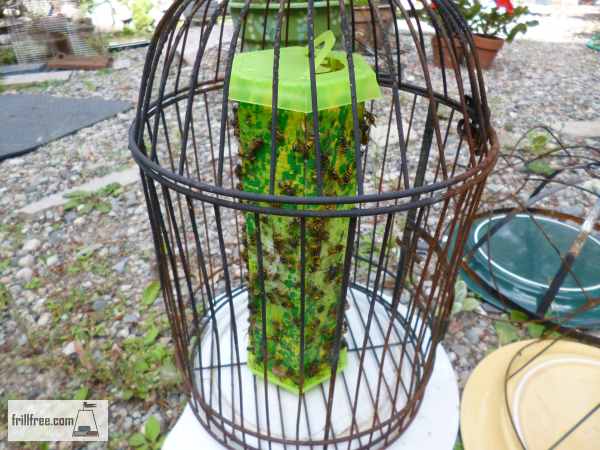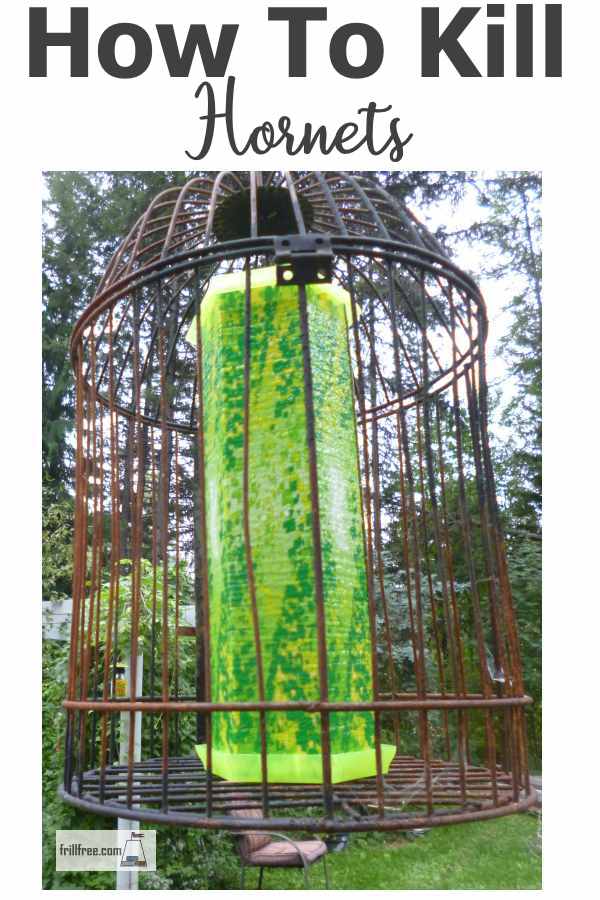- Homesteading
- Poison Free Gardening
- How To Kill Hornets
How To Kill Hornets
Without Pesticides
I am a participant in the Amazon Services LLC Associates Program, an affiliate advertising program designed to provide a means for me to earn fees by linking to Amazon.com and affiliated sites. Other links on this site may lead to other affiliates that I'm associated with.
Hornets, and all other wasps, are useful in the garden in many ways. They predate lots of other insects and larvae, taking them back to their papery nests.
But what if you're allergic to them? They always buzz around your
food when you dine alfresco, get underfoot when you're harvesting fruit,
and generally act like they are the boss.
You can tell the workers from the queen, mostly because the workers are the smaller ones, and they make the most trouble. If you know where the nest is, then you can avoid it, leaving them to do their work and they'll leave you in peace.
In the early spring, the first ones
you'll see are huge! These are the queens, who will go on to start the
nest, hatch out her brood and produce the workers who are the problem
children. Kill these first ones, and you generally won't have an issue.
Later on in the heat of the summer, the workers are trying to keep
food and water going to the nest to feed the young ones. This is where
the bait and kill type of traps work the best.
For those times when it's absolutely crucial to keep them under control, this method, The Sweet Death, as I call it, works. Say you're having a picnic or a barbeque. The most unwelcome guests will be those pesky hornets. This is the method;
- A few days ahead of time, take a large clear wine bottle, 2 liters works well.
- Put about an inch or so of wine, beer or fruit juice in the bottle.
- Add some sugar, if it's dry wine.
- Around the mouth of the bottle, and inside the lip, smear some raspberry jam.
- Prepare to watch the hornets unable to resist going in.
- Put an upside down half bottle (cut in half with scissors) to prevent escape.
- Interesting fact; hornets can't fly upwards, so once they get into the bottle, they can't avoid being drowned in the wine or juice. They have a sweet death, eating something they love.
Other ways to trap them consist of traps that either get them stuck on a sticky surface where they struggle and get even more trapped until they perish, or a quicker non-chemical method using a similar trap to my system, a jar with a lid and filled with some kind of bait or attractant. These can catch wasps, flies and other pests too, depending on the bait.
I tried two different ones to test them out.
In addition, if you know where the nest happens to be, the occupants can be killed off with a spray bomb.
 How to Kill Hornets - three options
How to Kill Hornets - three optionsI would avoid foggers and other chemical sprays, except for the bomb type for the nests. After all, they may work to kill hornets, but they will harm everything else too - including you!
Five days later, we have a winner! Hands down, the best trap is...
Rescue TrapStik Wasp Trap - TSW-BB6 Pack of 2This took five days to be almost covered with dying hornets, plus the odd other kind of pest.
Sadly, a tiny butterfly and a
few little moths got trapped too. (This is one reason I put it inside
the bird cage - larger butterflies like swallowtails,or hummingbirds, can't get in to the
cage, so it's safer for them.)
However, the other trap, with the few inches of beer in it caught mostly moths.
 How to Kill Hornets - the winner!
How to Kill Hornets - the winner!Wasp and Hornet Killing Tips
- Put the cage as seen here on the ground, if you have a lot of wasps foraging in the grass or close to the soil level.
- Use a bird cage to protect butterflies and other non-pests from getting to it.
- Get two or more if you have several areas where you see lots of wasps - most likely there are more than one nest, and they won't forage in each others territory.
- If hornets are going into the hummingbird feeder, exchange it for a bottle half full of the 'sweet death' mixture. Hang it from a chain wrapped around the neck to suspend it. Relocate the feeder to another spot close by so the birds can still find it.















